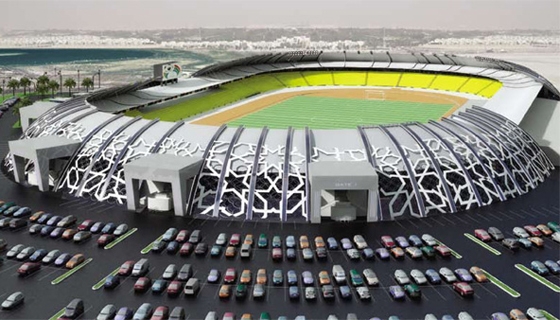With an allocation of $24bn to key projects, Qatar’s infrastructure sector witnessed a 16 percent growth in 2013/14.
This is the biggest infrastructure budget allocation in the country’s history, the global consulting and financial advisory firm Deloitte noted in its latest Construction Industry report.
Qatar is projected to spend $182bn over the next five years. Funds have been set aside for completing Hamad International Airport, the New Doha Port Project, the rail and metro projects, and the roads program. A major part of the spending will be on the Qatar Rail project, which is expected to cost around $45bn to build.
Lusail City has started receiving its first residents following the completion of the bulk of its infrastructure and the town will be fully ready by the end of 2014, according to Qatari Diar. When completed, it is designed to have over 200,000 people living within it and have a value of around $45bn.
The major cause for concern is the rising construction costs, from materials to labor. The Qatari government is aiming to keep these costs in check by taking a hands-on approach. It is looking to regulate commodities by creating a single buying source to import into the country run by a government subsidiary which will then sell on to the contractors.
Meanwhile, the government has attempted to increase the supply of certain commodities by raising production levels within the country again by creating government subsidiaries which own these commodities and can stockpile them before prices escalate, Cynthia Corby, Partner, Construction Industry Leader, Deloitte Middle East, noted.
Looking forward, it seems like government-led initiatives will continue to drive growth in the GCC construction sector as regional governments continue to focus on social infrastructure projects.
The rail industry alone in the GCC could create 50,000 jobs with most nations creating or upgrading their rail networks. These consist of the multi-nation interconnected railway network along with metro and tram projects of which there are many, including the Riyadh Metro project, Etihad Rail, Qatar Rail and the upgrades to the Dubai metro.
According to a survey performed by Pinsent Masons, 90 percent of companies perceived greater optimism in the market in 2013, with 77 percent reporting a healthier order book for the next 12 months relative to the previous year and 40 percent expecting their order books to increase by over 10 percent. This emphasizes the optimism currently in the market, but with mass optimism there needs to be caution, as we have all learnt from the past.
The GCC saw $70bn worth of construction projects completed in 2013 with this number predicted to rise to $83.5bn in the current year according to Ventures ME. Residential developments accounted for just over 43 percent of total completed projects, which is expected due to the region’s rapid population growth and thus the governments’ increased social infrastructure spends.
The UAE and Saudi Arabia ranked in the top two positions for all sectors apart from education and healthcare where Qatar held the top spot in both.
The Peninsula
17 November























































